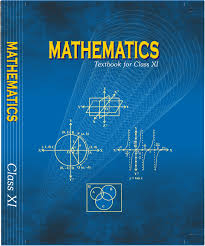Class 11 - Mathematics
Permutations Combinations - Exercise 7.4

Top Block 1
Question 1:
If nC8 = nC2, find nC2
Answer:
We know that nCa = nCb
=> n = a + b or a = b
Now,
nC8 = nC2
=> n = 8 + 2 = 10
So, 10C2 = 10!/{2! * (10 – 2)!}
= 10!/(2! * 8!)
= (10 * 9 * 8!)/(2 * 1 * 8!)
= 90/2
= 45
Question 2:
(i) 2nC3 : nC3 = 12 : 1 (ii) 2nC3 : nC3 = 11 : 1
Answer:
(i) 2nC3 : nC3 = 12 : 1
=> 2nC3 / nC3 = 12/1
=> [(2n)!/{3! * (2n – 3)}]/[(n)!/{3! * (n – 3)}] = 12/1
=> [{(2n) *(2n – 1) *(2n – 2) * (2n – 3)!}]/[{3! * (2n – 3)}/[{n * (n -1) *(n -2) * (n – 3)!}/{3! * (n –
3)}] = 12/1
=> {2(2n – 1)(2n – 2)}/{(n -1)(n – 2)} = 12
=> {4(2n – 1)(n – 1)}/{(n -1)(n – 2)} = 12
=> (2n – 1)/(n – 2) = 3
=> 2n – 1 = 3(n – 2)
=> 2n – 1 = 3n – 6
=> 3n – 2n = 6 – 1
=> n = 5
(ii) 2nC3 : nC3 = 11 : 1
=> 2nC3 / nC3 = 11/1
=> [(2n)!/{3! * (2n – 3)}]/[(n)!/{3! * (n – 3)}] = 11/1
=> [{(2n) *(2n – 1) *(2n – 2) * (2n – 3)!}]/[{3! * (2n – 3)}/[{n * (n -1) *(n -2) * (n – 3)!}/{3! * (n –
3)}] = 11
=> {2(2n – 1)(2n – 2)}/{(n -1)(n – 2)} = 11
=> {4(2n – 1)(n – 1)}/{(n -1)(n – 2)} = 11
=> 4(2n – 1)/(n – 2) = 11
=> 8n – 4 = 11(n – 2)
=> 8n – 4 = 11n – 22
=> 11n – 8n = 22 – 4
=> 3n = 18
=> n = 18/3
=> n = 6
Question 3:
How many chords can be drawn through 21 points on a circle?
Answer:
For drawing one chord on a circle, only 2 points are required.
To know the number of chords that can be drawn through the given 21 points on a circle, the
number of combinations have to be counted.
Therefore, there will be as many chords as there are combinations of 21 points taken 2 at a
time.
Thus, required number of chords = 21C2 = (21)!/{2! * (21 – 2)!}
= (21)!/{2! * 19!}
= (21 * 20 * 19!)/{2 * 1 * 19!}
= 420/2
= 210
Question 4:
In how many ways can a team of 3 boys and 3 girls be selected from 5 boys and 4 girls?
Answer:
A team of 3 boys and 3 girls is to be selected from 5 boys and 4 girls.
3 boys can be selected from 5 boys in 5C3 ways.
3 girls can be selected from 4 girls in 4C3 ways.
Therefore, by multiplication principle, number of ways in which a team of 3 boys and 3 girls
can be selected = 5C3 * 4C3
= {5!/(3! * 2!)} * {4!/(3! * 1!)}
= {(5 * 4 * 3!)/(3! * 2)} * {(4 * 3)!/3!}
= (20/2) * 4 = 10 * 4 = 40
Question 5:
Find the number of ways of selecting 9 balls from 6 red balls, 5 white balls and 5 blue balls if each selection consists of 3 balls of each colour.
Answer:
There are a total of 6 red balls, 5 white balls, and 5 blue balls.
9 balls have to be selected in such a way that each selection consists of 3 balls of each colour.
Here,
3 balls can be selected from 6 red balls in 6C3 ways.
3 balls can be selected from 5 white balls in 5C3 ways.
3 balls can be selected from 5 blue balls in 5C3 ways.
Thus, by multiplication principle, required number of ways of selecting 9 balls girls can be
selected = 6C3 * 5C3 * 5C3
= {6!/(3! * 3!)} * {5!/(3! * 2!)} * {5!/(3! * 2!)}
= {6 * 5 * 4 * 3!)/(3! * 3 * 2)} * {(5 * 4 * 3!)/(3! * 2)} * {(5 * 4 * 3!)/(3! * 2)}
= 20 * 10 * 10
= 2000
Mddle block 1
Question 6:
Determine the number of 5 card combinations out of a deck of 52 cards if there is exactly one ace in each combination.
Answer:
In a deck of 52 cards, there are 4 aces.
A combination of 5 cards have to be made in which there is exactly one ace.
Then, one ace can be selected in 4C1 ways and the remaining 4 cards can be selected out of the
48 cards in 48C4 ways.
Thus, by multiplication principle, required number of 5 card combinations
= 48C4 * 4C1
= [(48)!/{4! * 44!}] * [(4)!/{1! * 3!}]
= [(48 * 47 * 46 * 45 * 44!)/(4! * 44!)] * [4!/ * 3!]
= [(48 * 47 * 46 * 45)/(4 * 3 * 2 * 1)] * [(4 * 3!)/ * 3!]
= (48 * 47 * 46 * 45)/(4 * 3 * 2 * 1)] * 4
= (48 * 47 * 46 * 45)/(3 * 2 * 1)]
= 8 * 47 * 46 * 45
= 778320
Question 7:
In how many ways can one select a cricket team of eleven from 17 players in which only 5 players can bowl if each cricket team of 11 must include exactly 4 bowlers?
Answer:
Out of 17 players, 5 players are bowlers.
A cricket team of 11 players is to be selected in such a way that there are exactly 4 bowlers.
4 bowlers can be selected in 5C4 ways and the remaining 7 players can be selected out of the
12 players in 12C7 ways.
Thus, by multiplication principle, required number of ways of selecting cricket team
= 5C4 * 12C7
= 5!/(4! * 1!) * 12!/(7! * 5!)
= 5 * (12 * 11 * 10 * 9 * 8)/(5 * 4 * 3 * 2 * 1)
= (12 * 11 * 10 * 9 * 8)/(4 * 3 * 2 * 1)
= 11 * 10 * 9 * 4
= 3960
Question 8:
A bag contains 5 black and 6 red balls. Determine the number of ways in which 2 black and 3 red balls can be selected.
Answer:
There are 5 black and 6 red balls in the bag.
2 black balls can be selected out of 5 black balls in 5C2 ways and 3 red balls can be selected
out of 6 red balls in 6C3 ways.
Thus, by multiplication principle, required number of ways of selecting 2 black and 3 red balls
= 5C2 * 6C3
= 5!/(2! * 3!) * 6!/(3! * 3!)
= {(5 * 4)/2} * {(6 * 5 * 4)/(3 * 2 * 1)}
=10 * 20
= 200
Question 9:
In how many ways can a student choose a programme of 5 courses if 9 courses are available and 2 specific courses are compulsory for every student?
Answer:
There are 9 courses available out of which, 2 specific courses are compulsory for every
student.
Therefore, every student has to choose 3 courses out of the remaining 7 courses.
This can be chosen in 7C3 ways.
Thus, required number of ways of choosing the programme = 7C3 = 7!/(3! * 4!)
= (7 * 6 * 5 * 4!)/(3 * 2 * 1 * 4!)
= (7 * 6 * 5)/6 = 35
Bottom Block 3
Click here to visit Official CBSE website
Click here for NCERT solutions
Click here to visit Official Website of NCERT
Click here to download NCERT Textbooks
